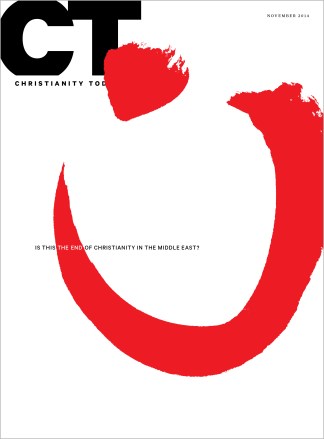Glorious men,” wrote the philosopher Francis Bacon, “are the scorn of wise men, the admiration of fools, the idols of parasites, and the slaves of their own vaunts.” The subject of his essay was vainglory, an old-fashioned word that describes the desire to be noticed and praised.
As vices go, vainglory sounds as quaint as a Victorian buttonhook. Yet it’s as vexing a problem today as when the church fathers included it among the deadly sins (as a subset of Pride). In Vainglory: The Forgotten Vice (Eerdmans), Rebecca Konyndyk DeYoung, who teaches philosophy at Calvin College, provides an exceedingly relevant and fascinating examination of a concept we ought to rescue from obsolescence.
The book begins with helpful definitions. Vain, the more familiar half of the word, simply means empty. DeYoung calls upon medieval theologian Thomas Aquinas, from whom the book draws heavily, to define glory as goodness made “apparent and manifest in its splendor” or, more concisely, “goodness that is displayed.”
The manifesting of goodness, DeYoung writes, is “necessary and beneficial to human flourishing.” Indeed, the very nature of goodness, according to Aquinas, is to “communicate itself”—or, as DeYoung puts it, to radiate outward. Goodness rightly asks for recognition.
Christians are particularly susceptible to vainglory. After all, we are a people who strive both to make goodness manifest and to recognize it where it appears. The danger comes when we’re tempted to replace a desire for good with a desire for the applause that naturally follows.
Thus, DeYoung writes, as with all foundational human desires, vainglory’s “deep appeal drives us to seek attention in many disordered ways.” Whether cultivated inwardly by pride or fear, or fed externally by others’ high expectations, the pursuit of praise (rather than the good at its root) readily becomes a powerful habit. The vainglorious person might begin innocently, rightfully earning honor for some praiseworthy quality or accomplishment. But before long, the thirst for applause and recognition becomes overpowering. It’s not hard to think of politicians, athletes, and musicians who started out with pure motives but eventually fell prey to vainglory.
Perhaps no one has better understood vainglory’s lure than the monastics of the early church. The church fathers (DeYoung cites them generously) made searching connections between vainglory and its offshoots, such as boasting, hypocrisy, obstinacy, contention, and discord. Today vainglory is often conflated with pride, but the early church recognized important distinctions we have since lost. According to DeYoung, the “prideful desire superiority, and the vainglorious desire the show of superiority.” Such careful parsing offers helpful insights into the subtleties of human nature and sinfulness.
Vainglory is more than an intellectual exercise, however. As DeYoung points out, naming a vice helps to distinguish between symptom and cause and points to means of correction. Accordingly, the latter part of the book first examines vainglory’s opposite, magnanimity (greatness of soul), and then outlines some practices to point us there. Though the book’s diagnosis is more compelling than its remedies, DeYoung does recommend some worthwhile spiritual disciplines, like silence and solitude, foundational to the desert fathers.
Our culture, driven by publicity, spin, and social media, is rife with vainglory. DeYoung points out that the envy that tends to accompany vainglory makes it difficult for Christians to celebrate goodness together or to share struggles and failures. Freedom from vainglory, she writes, “comes from giving up the mirrors, the artificial lighting, and the careful poses and instead resting in the knowledge that we are, from the first to the last, beloved in God’s sight.”
This book is goodness made manifest and should be widely read.
Karen Swallow Prior teaches English at Liberty University. She is the author of Fierce Convictions—The Extraordinary Life of Hannah More: Poet, Reformer, Abolitionist (Thomas Nelson).











